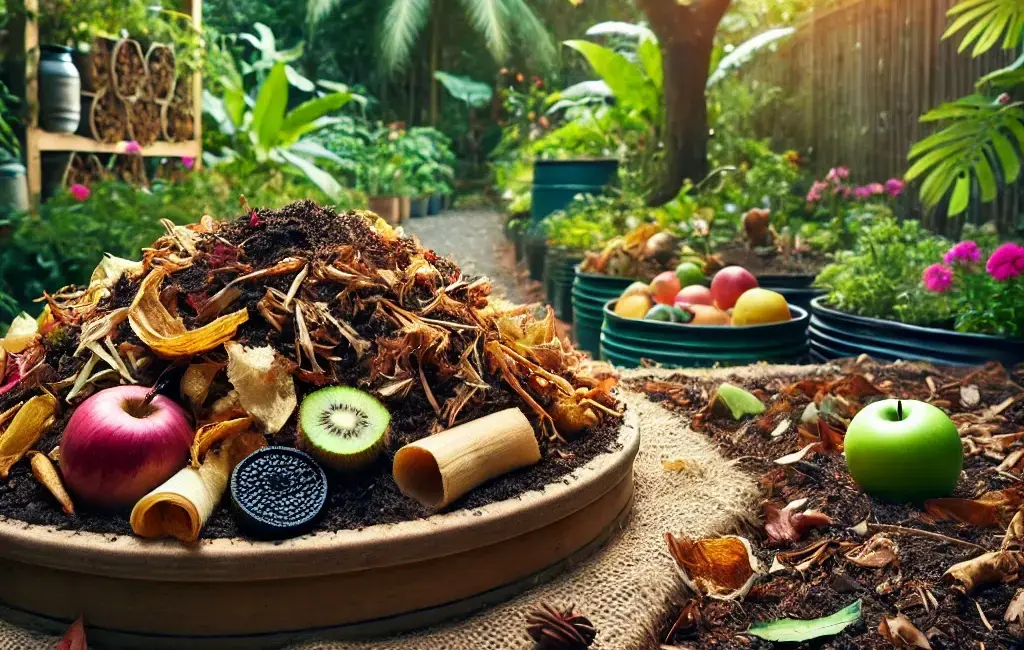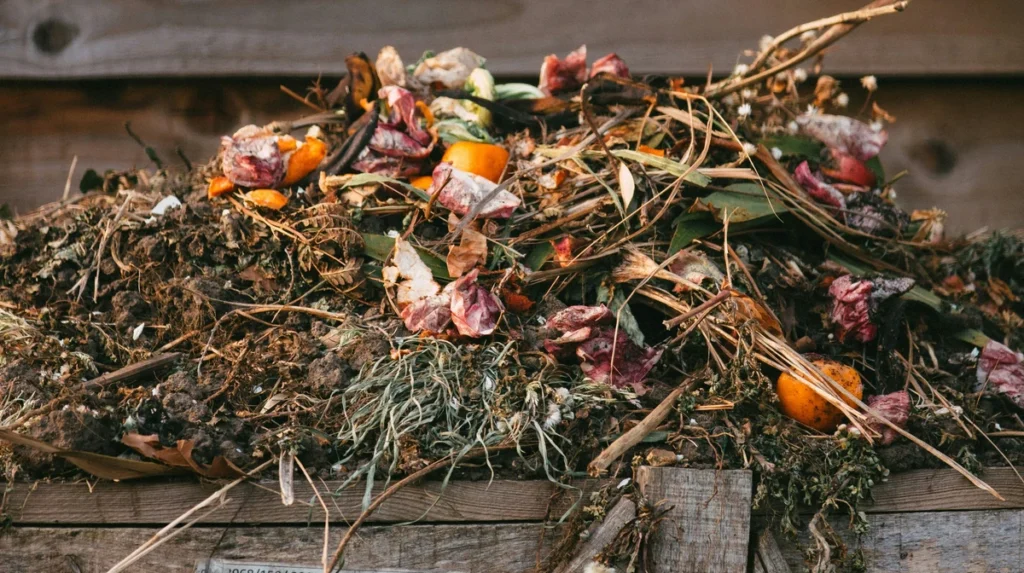Have you ever found yourself picking up a large pile of dried leaves or throwing away food scraps and wondering if there’s a better use for them? It might be annoying to see garden waste and food leftovers pile up.
But what if I say – this waste could be a treasure trove of opportunities? When you manage your waste like dried leaves and food waste, you can improve the environment and your daily lives. With little extra effort, these wastes can be easily transformed into valuable resources. Later when used these resources benefit the garden and help reduce household waste.
Dried leaves are like gold given by nature to us, rich in nutrients that can nourish your soil, and protect your plants. Similarly, food waste can be a powerhouse for composting, feeding livestock, or even creating biogas to power homes. It’s all about seeing the potential in what we usually discard. So, before you sweep those leaves into a trash bag or dump your kitchen scraps, let’s explore how dried leaves and food waste can be transformed into useful resources.
How Can Dried Leaves Be Useful
1. Transform into Compost
Dried leaves are nature’s gift for gardeners. When it is added to the compost rack it is decomposed into a nutrient-rich material. It can be used as a natural fertilizer without any side effects.
2. Mulching with Dried Leaves
You know what mulching is? When you mulch you cover the top layer with dried leaves. This process of covering improves the soil health, reduces the growth of weeds, and retains the soil moisture. Instead of using mulching paper using dried leaves is a great alternative. It’s like giving your garden a cozy blanket during the cold months!
3. Making Leaf Mold
Sounds fancy, but it is just a form of compost made specially from leaves. Allowing leaves to degrade for a year or two results in a soft, crumbly substance that promotes soil structure and holding on to water. You just have to allow leaves to degrade for years or two, and they will become soft, crumbly material that helps improve the soil structure. Consider offering your garden soil a moisture-boosting spa treatment!
How Can Food Waste Be Useful
1. Compost Food Waste
The process of composting food waste is similar to the process followed to turn dried leaves into compost. Food waste includes vegetable and fruit peels and leftover foods. All this waste easily breaks into nutrient-rich minerals. You can use it in the garden to provide nutrients the plants need.
2. Feeding Livestock with Food Scraps
Food scraps like vegetable peels can be used to feed the animals. If you raise animals, you can feed them food scraps. It’s a healthy snack for them and helps reduce the amount of waste heading to landfills. But avoid feeding them with processed or spoiled foods. It may cause certain health issues.
3. Biogas From Food Waste
Did you know that food waste can be used to generate biogas? You must know that biogas is the source of energy produced by using organic waste including food waste. The energy produced can be used to power homes and for cooking purposes.
Benefits of Using Dried Leaves and Food Waste

1. Reducing Waste in Landfill
When you find a way to repurpose dried leaves and food waste, you are directly preventing it from sending to landfills. Because in the landfills they decompose and release harmful gases, which contributes to climate change.
2. Saves Money
Why pay high prices for fertilizers, mulch, and even energy when you can make your own? Using dried leaves and food waste allows you to save money while also making the most of what you have. It’s a win-win for your money and the environment!
3. Encouraging a Zero-Waste Lifestyle
Repurposing organic waste promotes a zero-waste lifestyle. By minimizing, reusing, and recycling resources such as leaves and food waste, you help to create a sustainable future.
Conclusion
Now you have the answer to your question- How can dried leaves and food waste be useful? With small extra effort, you can transform these materials into something incredibly useful. These simple actions improve the health of your garden and lower your household waste, but they also contribute to a larger goal—sustainability.
So, the next time you’re bagging leaves or throwing food trash, take a moment to think about your choices. You have the power to transform what feels like waste into something extremely valuable.

Pingback: Sustainable Living Tips for Everyday Life -
Pingback: 12 Environment Friendly Items You Can Use Every Day - Greenizc
Pingback: 10 Ways to Avoid Food Wastage That You Can Start Today - Greenizc
Pingback: 100 Ways to Save the Environment: Simple Tips to Protect Nature - Greenizc
Pingback: Step-by-Step Tips to Make Compost from Kitchen Waste at Home - Greenizc